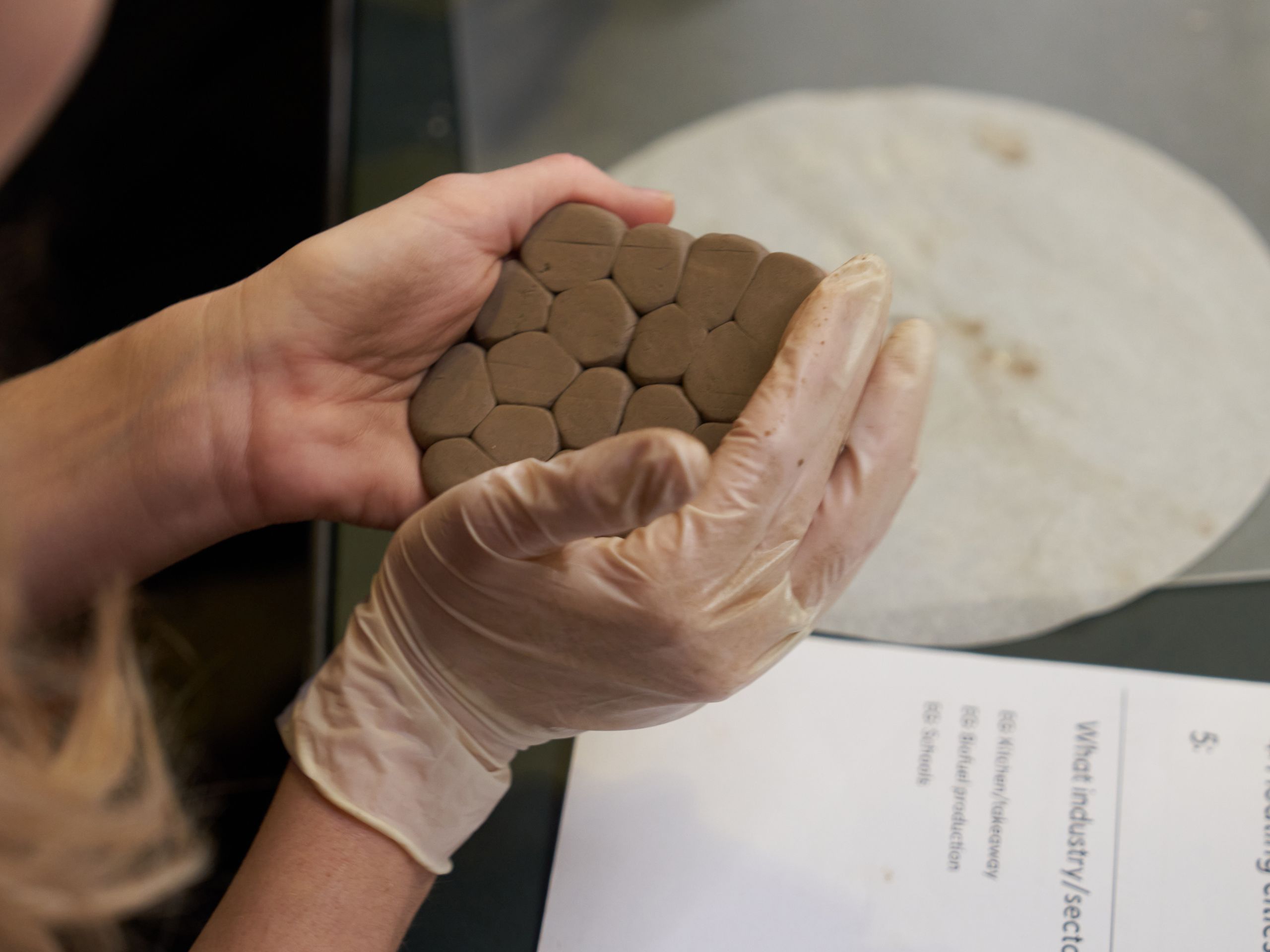Waste systems are intricate and often difficult to grasp, but approaching them with a human-centered perspective can reveal the labor and ingenuity required to maintain and transform them. By considering the people, processes, and materials involved, we can better understand the complex network that underpins waste management and creation. As Ada Lovelace once said, “Everything is connected—by invisible bonds of sympathy and understanding.” This interconnectedness is key when addressing waste systems, allowing us to see how each part, from labor to material, contributes to the whole. Craft, in particular, offers a way to engage more deeply with these systems, inviting reflection and a closer examination of the unseen work that sustains them.
Our recent workshop, in collaboration with Argent and Olleco, explored the potential of bio-waste in material creation, focusing on glycerol, a byproduct of biofuel production. Participants engaged in hands-on experiments to understand how glycerol alters the composition of clay mixtures, fostering a deeper connection with the materials. By transforming waste fats into valuable resources, the workshop shifted participants’ perception of waste and its possibilities. Collaborative design sessions led to speculative ideas, such as using waste glycerol as an underground filter for collecting fats and oils, considering the economic and practical implications for industries like restaurants.
Craft has a unique ability to draw us closer to waste systems, encouraging us to see value where we once overlooked it. The act of making invites reflection, allowing us to reconsider the materials we discard and the hidden potentials within them. With this in mind, we plan to expand the workshop across Europe in 2024, including sessions at St. Joseph’s School in West Norwood. Engaging younger audiences interested in waste economics, engineering, and design will help inspire the next generation of sustainable innovators.
Through hands-on learning and creative collaboration, we aim to drive innovative solutions and new narratives around waste, contributing to a more sustainable future.
